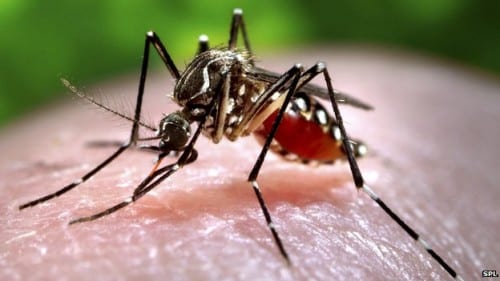Alarm bells are ringing on Ibiza over a dengue fever outbreak striking German tourists last summer that has shocked health officials.
Two separate outbreaks affecting up to six people who were on holiday in the same area of the island during the incubation period have been announced by German officials.
The Spanish Health Ministry described the risk of catching dengue fever this summer on Ibiza as ‘moderate’, with the risk only being low at the moment.
The infected all belong to two separate families who were on the island at different times, but one group fell ill in the early September outbreak and the other in the mid-October outbreak.
As of now only one of the cases is considered confirmed, with another probable, and four more compatible.
The confirmed case involves a 27-year-old woman who visited Ibiza last August with her partner and infant.
They stayed from August 23 to 30 and then developed the symptoms of dengue fever, joint pain, a rash and fever, the following day on their return.

Doctors in Germany performed screening tests and confirmed that it was dengue fever.
Dengue fever first reared its head in the Mediterranean in 2018 but was obscured during the Covid pandemic.
However, the presence of the tiger mosquito along the entire Mediterranean coast and large parts of the interior of Spain means that any imported case could be the beginning of an outbreak.
Dengue fever is an infectious disease caused by a virus endemic to tropical countries, but which in recent years has caused outbreaks in Europe from cases imported by travellers from other areas.
This outbreak is thought to have been traced to a Madrid resident who visited Ibiza after returning from Mexico where dengue fever has been more common.
The bite of the tiger mosquito, a species originally from Asia but established in wide areas of southern Europe for two decades, is the transmission route of the virus in the vast majority of cases.
There is no specific treatment for dengue, which can be a deadly disease, but early detection and prompt medical care can reduce fatality rates to 1%.
READ MORE:
- Spain’s oldest human genome dug up in Granada
- U-turn by regional health bosses after Torrevieja Hospital staff voted for strike action on Spain’s Costa Blanca
- Spain’s Costa Blanca has third-highest number of health worker attacks and threats in the country








